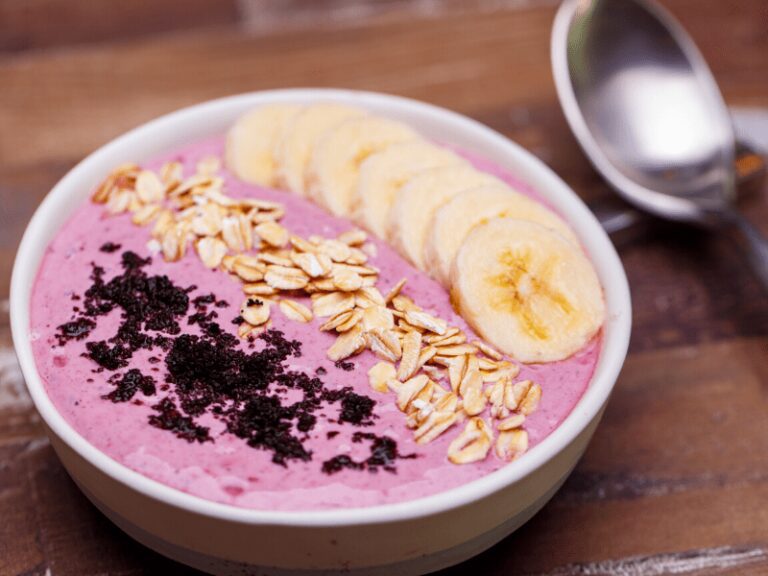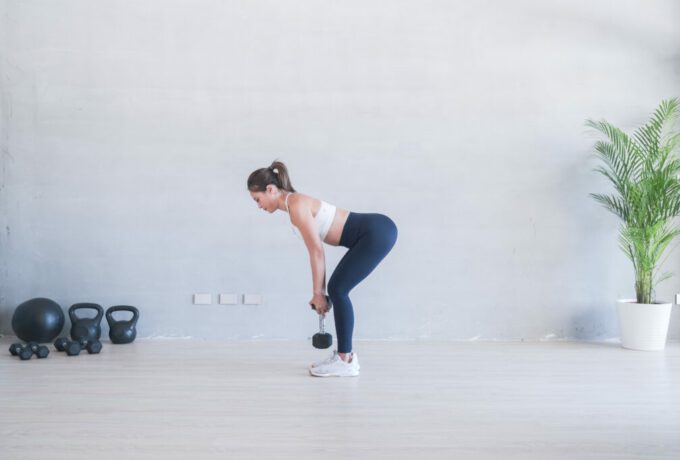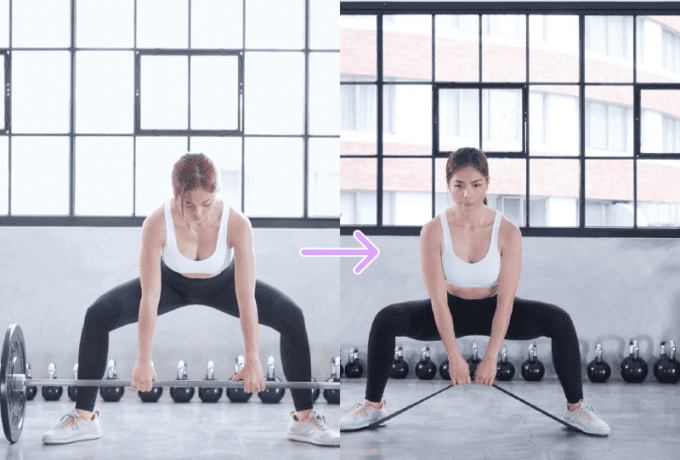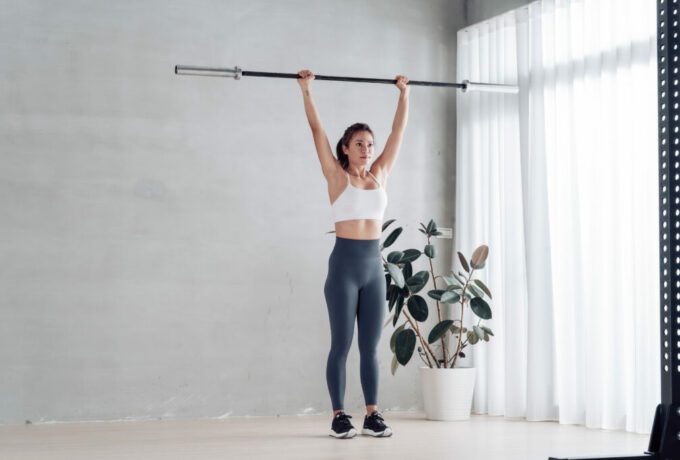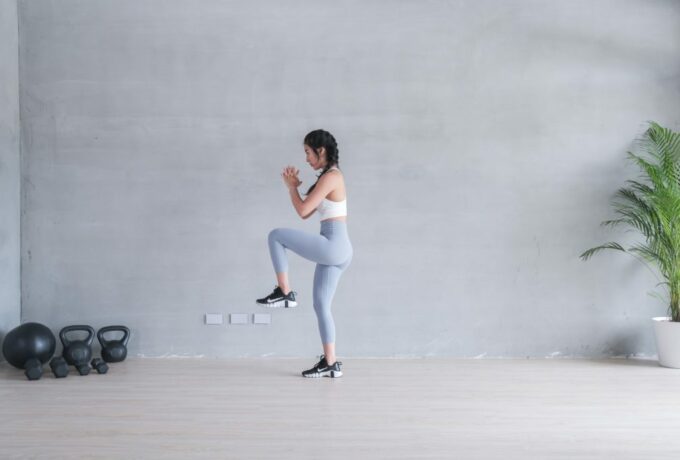What to eat after exercise?
Many people drink high-protein beverages after exercise, especially heavy exercisers. However, if you only supplement protein after exercise, the effect of muscle building may not be optimal because muscle synthesis requires the help of “insulin.” To promote muscle growth, you need to take high glycemic index (GI) carbohydrates, such as bananas or sugary drinks, which can help secrete insulin faster.
Consuming high GI carbohydrates after exercise also serves another purpose: replenishing the liver glycogen in muscles. Eating the right food after exercise to replenish liver glycogen can speed up physical energy recovery and shorten the time of fatigue after exercise, which is very important for people or athletes with regular exercise habits.
I once had a client, a 37-year-old woman who wanted to lose weight. She was very strict about her diet and exercised three times a week for three years, but her body fat was still too high, and her muscle mass had not increased. When I asked her about her post-workout nutrition, she said she was afraid to eat after exercise, thinking that eating would render her pre-exercise efforts useless. However, this is a common misconception.
After Exercise, as Long as You Eat within 30 Minutes, It’s Not Easy to Gain Weight!
During exercise, muscle contraction requires energy and prompts the “glucose transfer protein” GLUT4 activity to increase, allowing muscle cells to obtain glucose as a source of energy more quickly. You can think of GLUT4 as the gateway for energy (glucose) into the muscle cells. After stopping exercise for 30 minutes, GLUT4 activity in muscle cells begins to decrease (as shown in the figure below) and decreases rapidly after stopping exercise for 45 minutes.
What does this mean? If you eat within 30 minutes after exercise, most of the calories will enter the muscle cells to be used up, and there will be no excess calories stored as fat, so it’s not easy to gain weight. However, if you wait too long after exercise, the decline in GLUT4 activity means that these calories won’t enter the muscle cells easily. The remaining unconsumed calories will be stored as fat, leading to weight gain.
In a 2006 study by Cribb and Hayes (Note 1), for the same food and calorie intake, the group that ate protein and carbohydrates before and immediately after exercise gained more muscle mass and had a lower body fat percentage than the group that ate in the morning and evening. The group that ate in the morning and evening did not have a lower body fat percentage. This means that the timing of eating before and after exercise is an important key.
Post-Exercise (Post-Training Meal) Diet Gold Supplementation Principles
- Gold Supplementation Time: Within 30 minutes after exercise.
- Gold Supplement Ratio: The best supplement ratio after aerobic exercise is “carbohydrate: protein = 3~4:1”, while muscle training can be adjusted to “carbohydrate: protein = 2~3:1”.

Post-Exercise Diet Should Include High GI Carbohydrates
Many people drink high protein after exercise, especially heavy trainers. However, if you only supplement protein after exercise, the effect of muscle gain is not good, as muscle synthesis needs the help of “insulin”. To promote muscle growth and make insulin secretion faster, you need to take “high glycemic index” high GI carbohydrates (such as bananas and sugary drinks).
A few years ago, I taught a class for a group of fitness instructors at a chain of health clubs, and I talked about the importance of getting enough carbohydrates after exercise. After a year, I was invited to teach a class for more than 100 fitness instructors at other facilities. These trainers wanted to experience it for themselves. When I specifically asked them if there was an increase in training volume during the 6 weeks, they said no, it was the same as before, but the rate of muscle gain was not as fast. So, please do not insist that you can only take high protein after exercise. Having enough carbohydrates can help you gain muscle effectively and save money (protein food is more expensive).
In addition, there is another purpose of taking high GI carbohydrates after exercise, which is to replenish the liver glycogen in the muscles. Eating the right food after exercise to replenish the liver glycogen can speed up the recovery of physical energy and shorten the time of fatigue after exercise, which is very important for people or athletes with regular exercise habits.
Examples of Post-Exercise Supplements
1. 50~60kg
(1) 450ml Soy milk with sugar + 1 banana
(2) 400ml Soy milk with sugar + 1 medium peanut
2. 60~70kg
(1) 450ml Soy milk with sugar + 1 rice ball
(2) Grilled chicken thigh burger + 200ml fruit juice
3. 70~80kg
(1) 500ml Sweetened yogurt + 1 tea egg + 1 banana
(2) 6-inch submarine burger + 300ml fruit juice
Nutritionist Donna’s Tips
With the spread of sports, more and more people hope to pursue “muscle gain and fat loss.” Exercise can indeed achieve some results, but without dietary supplements, the effectiveness will be reduced. After exercise, remember the “golden time” and “golden ratio” of dietary supplementation to maximize the effects of exercise. However, the above concept of post-exercise nutritional supplementation may not be suitable for everyone. The purpose, content, time, and intensity of each person’s exercise are different and cannot be applied to everyone in the same way. Therefore, if you hope to sculpt your body more precisely or have a specific sports purpose, it is recommended to find a nutritionist specialized in sports nutrition to help you plan your diet!

